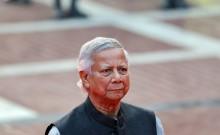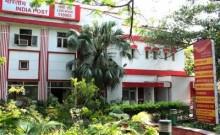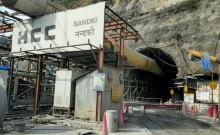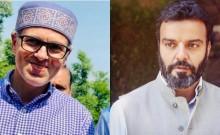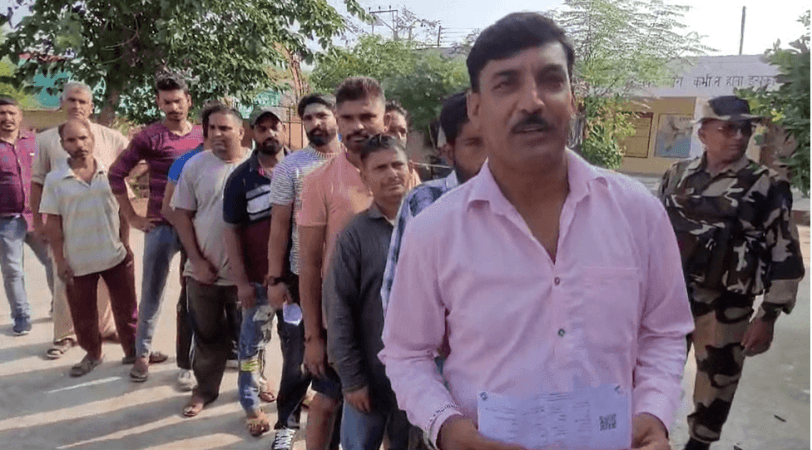
Nonagenarian Ruldu Ram could not control his emotions and happiness after casting his vote for the first time in his life for the Jammu and Kashmir Legislative Assembly.
Ram, 92, feels proud that his vote would also matter in forming the new government in Jammu and Kashmir, as he was deprived of this constitutional right for decades together.
Although Ruldu Ram and his family have been living in the Jammu region since 1947, they were singled out to become part of forming a state government in Jammu and Kashmir. They were also denied the right to elect Panchayat members of their village.
Ram is not an isolated case; there are about 1.5 lakh voters, and the majority of them belong to Dalits and Other Backward Classes (OBCs), who were denied voting rights in Assembly, Panchayat, and Urban Local Bodies (ULBs) elections.

Along with his son Arjun Kumar, Ruldu Ram exercised his right to franchise in the Prem Nagar area of Jammu district.
"First time in my life I am casting my votes in electing MLA of my choice", Ram told media persons after exercising his right to franchise.
From Jammu city to the border areas of Kathua district, West Pakistani Refugees were over-enthusiastic for the first time cast their votes in the Assembly elections of Jammu and Kashmir, where they have been living for the last 76 years.
The refugees have reasons to be overjoyed, as it is for the first time since independence that they got a taste of real democracy.
Earlier, they used to cast their votes in Lok Sabha elections but they were not eligible for casting votes in J&K's local elections.
As per data, there are 21,149 West Pakistani refugee families in the Jammu region. Of them, nearly 90 percent are Dalits. They are spread in Jammu, Kathua and Samba districts
"First time since 1947, members of our community participate in the Assembly elections despite the fact that our families have living in villages of the Jammu region for the last 76 years," Labha Ram Gandhi, leader of the refugees, said.
West Pakistani Refugee families have been living in rural areas since 1947 but they were outcast as refugees and denied democratic rights. Their elders had entered Jammu and Kashmir from West Pakistan during the partition.
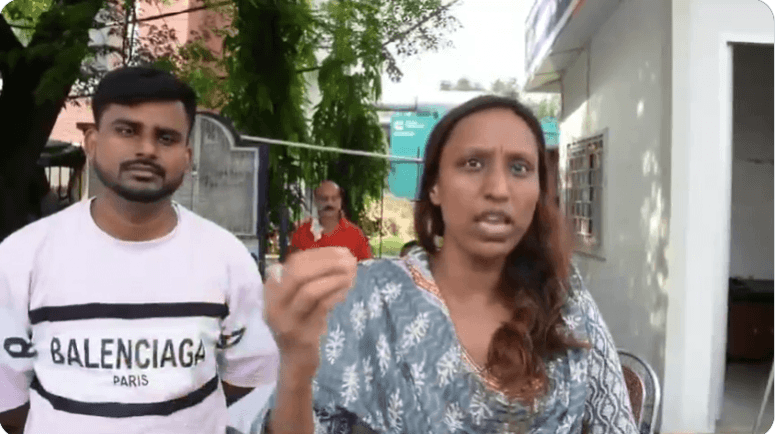
"Ignored" Valimkis also creates history
Members of the Valmiki community made history on Tuesday by casting their votes in the Jammu and Kashmir Assembly elections for the first time, following decades of being denied this fundamental democratic right.
As reported earlier, these Valmikis were originally brought to J&K from Gurdaspur, Punjab, in 1957 by the state government for sanitation work, but were never granted voting rights until now.
Expressing their joy over this newfound right, many described the moment as "historic." This community had no voting rights for the past 70 years. The Valmiki community was excluded from the democratic process for too long due to Article 35-A
Approximately 12,000 Valmikis living in areas such as Gandhi Nagar and Dogra Hall had long been deprived of voting rights, access to education, job opportunities, and land ownership due to the lack of a state subject certificate.
However, with the revocation of Article 35-A, Valmikis can now buy land, apply for government jobs, and participate in elections in J&K. The Valmiki community also now has the opportunity to explore alternative livelihoods beyond their traditional roles in sanitation work.










![PM Modi's 2025 in frames: From Op Sindoor to Ram Mandir Dhwajarohan [Photos]](https://data1.ibtimes.co.in/en/full/826530/pm-modis-2025-frames-op-sindoor-ram-mandir-dhwajarohan-photos.jpg?w=220&h=138)



